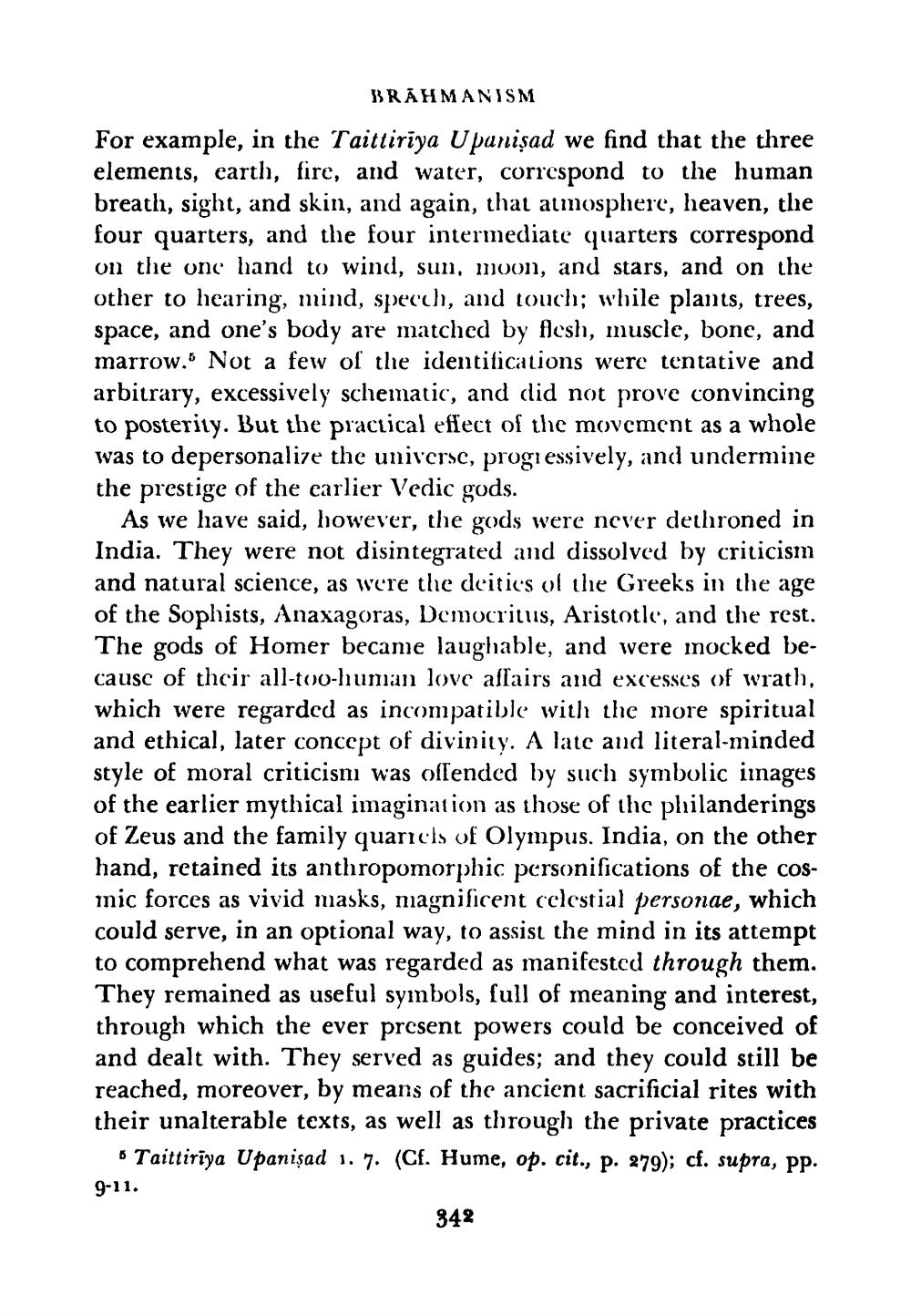________________
BRAHMANISM
For example, in the Taittiriya Upunişad we find that the three elements, carth, fire, and water, correspond to the human breath, sight, and skin, and again, that atmosphere, heaven, the four quarters, and the four intermediate quarters correspond on the one hand to wind, sun, moon, and stars, and on the other to hearing, mind, specch, and touch; while plants, trees, space, and one's body are matched by flesh, muscle, bone, and marrow. Not a few of the identifications were tentative and arbitrary, excessively schematic, and did not prove convincing to posterity. But the practical effect of the movement as a whole was to depersonalize the universc, progressively, and undermine the prestige of the carlier Vedic gods.
As we have said, however, the gods were never dethroned in India. They were not disintegrated and dissolved by criticism and natural science, as were the deities of the Greeks in the age of the Sophists, Anaxagoras, Democritus, Aristotle, and the rest. The gods of Homer became laughable, and were mocked becausc of their all-tvo-human love affairs and excesses of wrath, which were regarded as incompatible with the more spiritual and ethical, later concept of divinity. A late and literal-minded style of moral criticisni was offended by such symbolic innages of the earlier mythical imagination as those of thc pluilanderings of Zeus and the family quarıcts of Olympus. India, on the other hand, retained its anthropomorphic personifications of the cosinic forces as vivid masks, magnificent celestial personae, which could serve, in an optional way, to assist the mind in its attempt to comprehend what was regarded as manifested through them. They remained as useful symbols, full of meaning and interest, through which the ever present powers could be conceived of and dealt with. They served as guides; and they could still be reached, moreover, by means of the ancient sacrificial rites with their unalterable texts, as well as through the private practices
Taittiriya Upanişad 1.7. (Cf. Hume, op. cit., p. 279); cf. supra, pp. 9-11.
342




